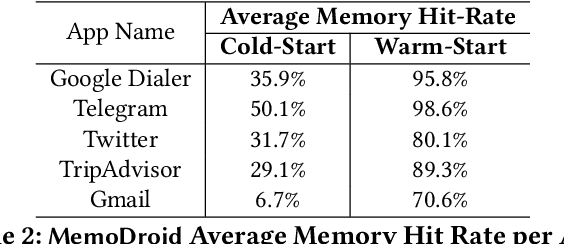Jungjae Lee
Explore, Select, Derive, and Recall: Augmenting LLM with Human-like Memory for Mobile Task Automation
Dec 04, 2023



Abstract:The advent of large language models (LLMs) has opened up new opportunities in the field of mobile task automation. Their superior language understanding and reasoning capabilities allow users to automate complex and repetitive tasks. However, due to the inherent unreliability and high operational cost of LLMs, their practical applicability is quite limited. To address these issues, this paper introduces MemoDroid, an innovative LLM-based mobile task automator enhanced with a unique app memory. MemoDroid emulates the cognitive process of humans interacting with a mobile app -- explore, select, derive, and recall. This approach allows for a more precise and efficient learning of a task's procedure by breaking it down into smaller, modular components that can be re-used, re-arranged, and adapted for various objectives. We implement MemoDroid using online LLMs services (GPT-3.5 and GPT-4) and evaluate its performance on 50 unique mobile tasks across 5 widely used mobile apps. The results indicate that MemoDroid can adapt learned tasks to varying contexts with 100% accuracy and reduces their latency and cost by 69.22% and 77.36% compared to a GPT-4 powered baseline.
 Add to Chrome
Add to Chrome Add to Firefox
Add to Firefox Add to Edge
Add to Edge